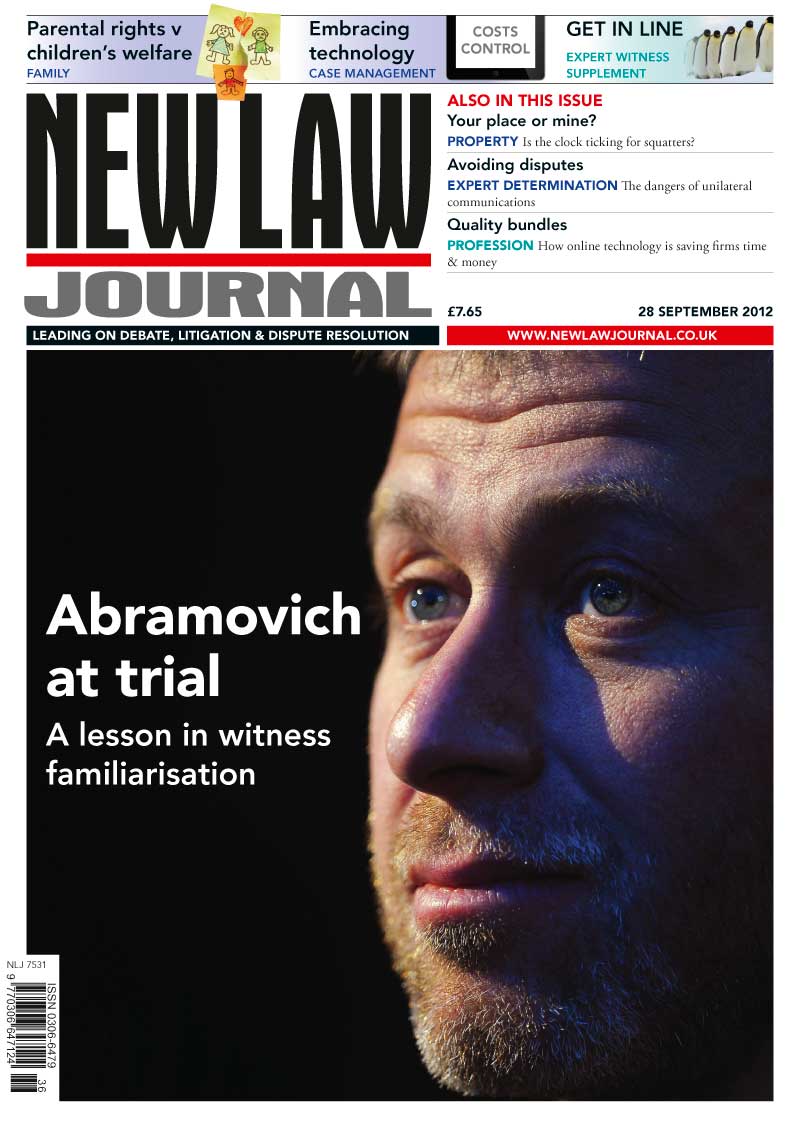
DAC Beachcroft has appointed financial services specialist Jayne Bennett as a partner in its Financial Institutions Group.
John Cooper QC, 25 Bedford Row, has been appointed special adviser to the Shadow Minister for Local Government and Communities.
His Honour Judge Peter Thornton QC took up his post as the first Chief Coroner of England and Wales this month.
Doncaster based law firm, Atherton Godfrey now has a Polish speaking member on its legal team.
Patricia Robertson QC has been appointed Vice Chair of the Bar Standards Board (BSB). She will take up the position in January 2013.
Parental rights should not trump children’s welfare, says Robert Micklem
Is the clock ticking for squatters? Mark Tempest reports
Simon Duncan continues to explore who has the right to sue former directors under s 217 of the Insolvency Act 1986
Clive Freedman & Christopher Harris expose the dangers of unilateral communications
Trade Agency Ltd v Seramico Investments Ltd C-619/10, [2012] All ER (D) 66 (Sep)
MOVERS & SHAKERS

NLJ Career Profile: Ken Fowlie, Stowe Family Law
Ken Fowlie, chairman of Stowe Family Law, reflects on more than 30 years in legal services after ‘falling into law’

Gardner Leader—Michelle Morgan & Catherine Morris
Regional law firm expands employment team with partner and senior associate hires

Freeths—Carly Harwood & Tom Newton
Nottinghamtrusts, estates and tax team welcomes two senior associates







